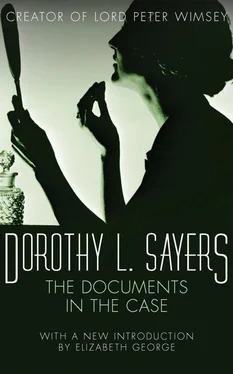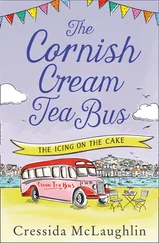Henry Trefusis, a carrier, stated that he had delivered a loaf of bread, a pound of shin of beef and other provisions to ‘The Shack’, at 10.30 a.m., on Thursday, October 17th. Deceased had called out to him from the outhouse to put the goods on the window-sill. As far as he could see and hear, deceased was then in his usual health and spirits.
Mr Lathom, recalled, confirmed his previous statement that Mr Harrison had spoken to him on the Wednesday evening about his intention of gathering fungi the next day, and had mentioned a name resembling ‘Warty Hats’ or ‘Warty Caps’.
The coroner, in summing up the evidence to the jury, laid stress on the danger of experimenting in unusual articles of diet. It was notorious, he said, that other nations, such as the French, were accustomed to eat many natural products, such as frogs, snails, dandelions and various kinds of fungi, which in this country were considered unfit for human food. Such experiments, when conducted by highly expert persons, might sometimes turn out well, but, on the other hand, nobody was infallible, and undoubtedly a wise caution was in most cases to be preferred. Sir James Lubbock had cited some very sad instances of unfortunate children who had succumbed to the effects of accidentally eating those dangerous toadstools which unhappily grew in such great profusion in many parts of the country, and he would like to urge on all parents the advisability of strictly forbidding their boys and girls to tamper with anything which they might pick up on their rambles. The present case would serve as a terrible warning, which he hoped would not soon be forgotten. It was most unfortunate that, owing to the remote situation of ‘The Shack’ and the unlucky absence of Mr Lathom in London, there should have been no help at hand when the deceased was overtaken by this terrible accident. The circumstances of his lonely and agonising death were such as to arouse the deepest compassion for the widow and son of the deceased.
The jury, after a few minutes’ consultation, brought in a verdict of Accidental Death, due to poisoning by Amanita muscaria . The foreman said that the jury desired to express their deep sympathy with the bereaved family. They would also like to add a rider to the effect that teachers in the schools of the surrounding districts should be encouraged to warn their pupils against the eating of toadstools, and that charts displaying the various kinds of poisonous fungi should be hung in the classrooms.
[An article on Fungi, by Professor Brookes, the distinguished naturalist, will be found on p. 8.]
49. Statement by Paul Harrison
I was in Africa when the news of my father’s death reached me. The work on which I was engaged was nearly completed, and I at once made arrangements for handing over the concluding portions of the job and returning to England. It took a little time to settle all this and to arrange for my journey to the coast, and it was not till the 6th of January, 1930, that I arrived in London.
From the moment that I heard the cause of death assigned, I was positively convinced that there was no accident about it. My father’s expert knowledge of fungi was very great; and he was a man of almost exaggerated precision in matters of this kind. It was entirely incredible to me that he could ever have mistaken a stool of Amanita muscaria for Amanita rubescens , even in the gathering of it; far more so that he could have peeled and prepared the fungus for eating without noticing the difference. To the average coroner’s jury, accustomed to dealing with schoolchildren and trippers, such a mistake would no doubt seem perfectly natural; but my father was no more likely to take muscaria for Rubescens than to take a piece of cast-iron for a piece of chilled steel. I immediately scouted the whole idea of accident. Two possibilities remained for me to investigate. Either my father, in his unselfish devotion to the worthless woman he had married, had destroyed himself by a painful method which would look like accident and so disarm suspicion; or else he had been murdered. In either case, I was determined that the woman should not benefit by the crime which she had caused.
Feeling as I did towards Margaret Harrison, I could not bring myself to take up my residence in my father’s house. I therefore took a room at an hotel in the Bloomsbury district, which has the advantage of being central, and set myself to examine the problem under all its aspects.
I read and re-read carefully all the newspaper reports of the inquest, and also all the letters which my father had written to me during the last two years. The most important of these latter I have included among the documents submitted to you. There was another, the essentials of which are covered by Mr Munting’s statement, which mentioned that Miss Agatha Milsom had had to be ‘put away’, and that the character of Mr Munting was accordingly considered to have been cleared from suspicion.
I fastened at once upon this incident. I had naturally never believed that Miss Milsom’s version of this episode was the true one. I believed my father to have been quite correct in his original suspicions. Miss Milsom’s illness had, I decided, enabled Munting to pull the wool over his victim’s eyes very nicely. Margaret Harrison and Munting had been corresponding all along, until the convenient decease of my father set them free to come together again after a decent interval.
This suggestion led me directly to the idea of suicide. In some way my father’s eyes had been opened to what was going on; and the agent must undoubtedly have been Lathom. He was Munting’s friend and, deliberately or unconsciously, he must have let fall some words during his stay at ‘The Shack’ which made the situation plain. I thought it probable that this young man had played a double-faced part, and forwarded Munting’s interests under pretence of being friendly with my father. As regards the idea of murder, Munting appeared to have an alibi. His arrival with Lathom on the Saturday night had been witnessed, and I did not think it likely that he could have made any earlier appearance in that sparsely populated district without being seen. It seemed possible that he and Lathom had been confederates, and committed the murder in collusion; but at the moment I was inclined to think that my father had been hounded into self-destruction by this precious pair, or rather trio.
It seemed to me that any first step must be to see Margaret Harrison. She would learn before long that I was in London, from my father’s solicitors, with whom I necessarily had business. It was better, therefore, to call on her at once, both to prevent her from suspecting my suspicions and to keep up appearances in the eyes of the neighbourhood.
Accordingly, I went round to Whittington Terrace on the day after my arrival. I sent up my name by the maid (a new girl since my time), and, after a short interval, Margaret Harrison came down to me. She was dressed in deep mourning, very fashionably cut, and came up to me with the gushing manner which I had always so greatly disliked.
‘Oh, Paul!’ she said, ‘isn’t this terrible? How dreadful it has been for you, poor dear, all that long way away! I am so glad you have managed to get home!’
‘If you are,’ I said, ‘it must be for the first time on record.’
Her face took on the sulky look I knew so well.
‘I knew you never liked me, Paul,’ she said, ‘but surely this is hardly the time to bear a grudge.’
‘Perhaps not,’ said I, ‘but it hardly seems worth while to pretend that you are delighted to see me.’
‘As you like,’ she replied. ‘We may as well sit down, anyway.’
She sat down, and I went over and stood by the window.
‘You are staying here, of course?’ she inquired, after a short silence.
Читать дальше












